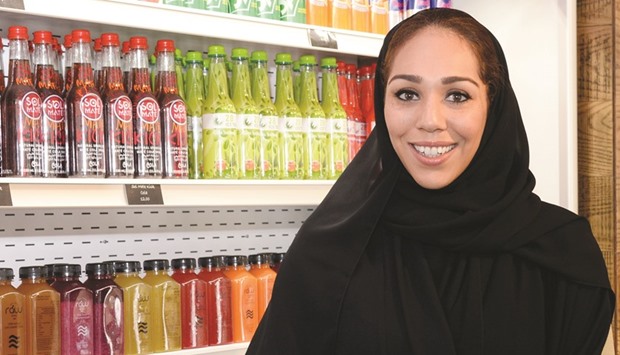A local firm specialising in the production of natural juice drinks has underscored the need for more companies in Qatar to maintain best practices in waste management, specifically recycling.
Citing the availability of a range of incentive programmes for eco-friendly practices in the US or the UK, Raw Middle East founder Layla al-Dorani noted that companies in Qatar should “do their part” in preserving the environment. She said Raw Middle East, which produces 100% natural fruit and vegetable juices, does not only practice recycling but encourages customers to recycle by returning the company’s plastic bottles. As an incentive, al-Dorani said customers get QR1 off on their next order for every bottle returned.
Aside from plastic bottles, Raw Middle East also uses tote delivery bags that are also recyclable.
“While these efforts don’t have any economic benefit to the company, we simply try to become a sustainable company and put our best foot forward. I think we’re the only company in Qatar that pays our customers to return our bottles, which we recycle. Hopefully, the practice will inspire them to recycle as well,” al-Dorani told Gulf Times.
To help educate the community on sustainable development and best practices, al-Dorani said Raw Middle East has posted on its website other initiatives that help minimise the company’s carbon footprint such as use of efficient lighting, deploy new vehicles for less gas emission, and the use of a timesaving scheduling system to reduce operating days and utility consumption, among others.
Al-Dorani said Raw Middle East donates its by-products to farmers, which could be used for composting. The company also supports local and regional farmers by buying their products first, depending on their availability.
The Qatari-American entrepreneur also emphasised the need for more awareness on recycling initiatives from the private and public sector.
“I think there should be more awareness about these initiatives in Qatar and that there should be more waste management companies that would promote these programmes. It’s something that should be explored further,” she said.
On a daily basis, the country collects and disposes around 3,000 tonnes of solid domestic waste, according to statistics from the Ministry of Municipality and Environment (MME).
The figure, however, does not include construction and hazardous wastes collected from different industrial and construction areas.
The Integrated Domestic Solid Waste Management Centre at Mesaieed, which was established in 2011, has the capacity to recycle green waste and organic materials up to 750 tonnes per day. The facility is currently undergoing expansion to accommodate more waste, the MME added.

Al-Dorani: Preserve environment. PICTURE: Thajudheen

